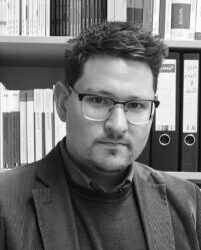On 2 and 3 September, the first co-creation workshop of the BMBF-funded IndI project took place at Schloss Mickeln in Düsseldorf. Representatives from politics, the media and public participation were invited to discuss with the research team how online discussions can be made more inclusive with the help of AI.
The aim of the workshop was to sharpen the concept of ‘discursive integration’ in a practice-oriented way. On this basis, the aim was to jointly consider how AI can be used to support this very discursive integration. This open approach can be explained against the background of the BMBF-funded research project, which pursues an open science approach (more on this here).
The first day focused on the concept of discursive integration and the norms that should apply to online discussions. After a short welcome and getting to know each other, the project team members Viviana Warnken and Marc Ziegele introduced the first working phase. They began by discussing the tension between the willingness to engage in conflict and the need for harmony, as well as the willingness of users to engage in dialogue. Participants identified particularly conflictual aspects, such as targeted hate speech and a reluctance to engage in dialogue, as well as positive developments, such as solidarity and the fight against discrimination. The influence of the demographic composition of the different platforms on the dynamics of the conversation was also discussed, with young women being seen as particularly underrepresented.
In the second working phase, the participants worked with the team to develop specific discourse norms that make up the concept of discursive integration. The participants gave feedback on the project team’s proposals and contributed new perspectives. Norms such as constructiveness, respect and the sanctioning of misbehaviour were particularly important to them. They also emphasised the role of content creators, who also need to be protected by appropriate standards.
At the end of the day, the participants’ creativity was called upon once again. Based on a short briefing, they had to work in groups to create a story about the worst or best online discussion imaginable. AI had to play a central role in the story. After the presentation, the stories were discussed in the group and key findings were recorded.
The second day of the workshop was dedicated to the development of AI interventions that could contribute to compliance with the norms identified on the previous day. Project coordinator Dennis Frieß and the participants started with a brainstorming session on known AI tools, rules for online discussions and user needs. This was the starting point for the mashup innovation, in which the participants were asked to innovatively combine as many aspects as possible from the brainstorming session. In small groups, they developed ideas for AI tools that ranged from the automated simplification of complex content to formulation aids and moderation tools for community management in order to support key norms in online discussions and satisfy the needs of users.
After a short break, Maike Behrendt and Tobias Escher presented some mock-ups of AI interventions developed so far in the project, which the participants were asked to rate in terms of effectiveness, feasibility and user acceptance. After an initial assessment, the next step was to discuss both the AI interventions that were strongly rejected and those that were particularly highly rated.
The workshop ended with a feedback round and a get-together over lunch. The participants and the project team drew a positive evaluation of the workshop overall, with the exchange between research and practice being emphasised as particularly valuable. The insights gained will be incorporated into the next steps of the IndI project.
We sincerely thank the participants for their constructive cooperation and for contributing their perspectives to the project!
Ansprechpartner
Dr. Dennis Frieß (Coordinator)
Board, Communication Studies, DIID-Team

Dr. Dennis Frieß is coordinator of the DIID. Since May 2019, he was coordinator of the NRW Research College Online Participation. From 2014 to 2019, he was a research assistant at the Chair of Communication and Media Studies III at HHU-Düsseldorf and a staff member at DIID. He studied Social Sciences, Law and Communication Science at the University of Erfurt (B.A.) and Political Communication in Düsseldorf (M.A.). His doctoral thesis focused on the analysis of deliberative online publics. His research focuses on political (online) communication, online deliberation, and online participation.
At the DIID, he is particularly interested in online-supported deliberation processes and the democracy-relevant expectations associated with online participation offerings.


